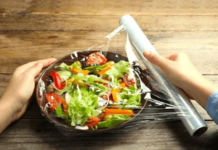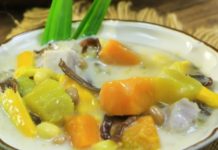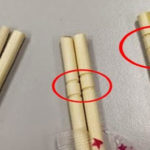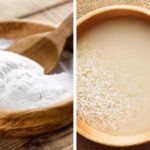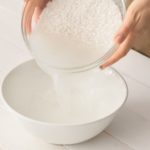Improper washing habits not only fail to effectively clean vegetables and fruits, but they can also allow toxins to penetrate deep into them, posing a risk to health. Dr. Tan Dunci, currently working at Truong Canh Hospital in Taiwan, shares three washing methods that can cause vegetables to absorb pesticides.
1 Washing vegetables with rice water
Many housewives believe that using rice water to wash vegetables is an effective way to remove pesticides because rice water contains vitamins from the B group. However, Dr. Tan Dunci explains that this method is mostly psychological as rice water can only dissolve or clean to some extent for fruits and vegetables that contain a small amount of plant protection substances without acute toxicity. For chemicals deeply embedded in produce, soaking them in rice water has no effect. Furthermore, rice can also contain residual pesticides, insect eggs, and other harmful components, making soaking fruits and vegetables in rice water potentially harmful.
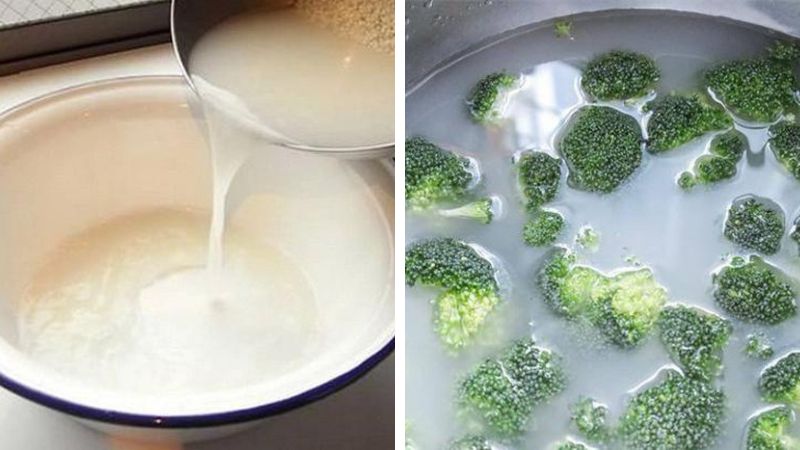
2 Adding baking soda and vinegar to vegetables
Some people use a mixture of baking soda and vinegar to wash vegetables, believing that it can effectively remove pesticides. However, pesticides are often in a compound form, which can make them more toxic when they are alkaline. Using baking soda and vinegar to wash vegetables with residual acidic pesticides can make the cleaning process more difficult. While vinegar is capable of killing bacteria and breaking down pollen and external debris, there is no research confirming that it can completely remove pesticides. Therefore, it is recommended to wash vegetables with vinegar and then rinse them with clean water.

3 Washing vegetables and adding salt
It is a common habit to add salt to water when washing vegetables. However, this can actually reduce the cleaning ability of water. The Agricultural Toxicology Laboratory has recognized that adding salt to water for washing vegetables not only fails to clean them effectively, but it also helps pesticides penetrate fruits and vegetables faster. Furthermore, the government encourages farmers to dissolve pesticides with water before using them, as tap water can effectively clean produce.
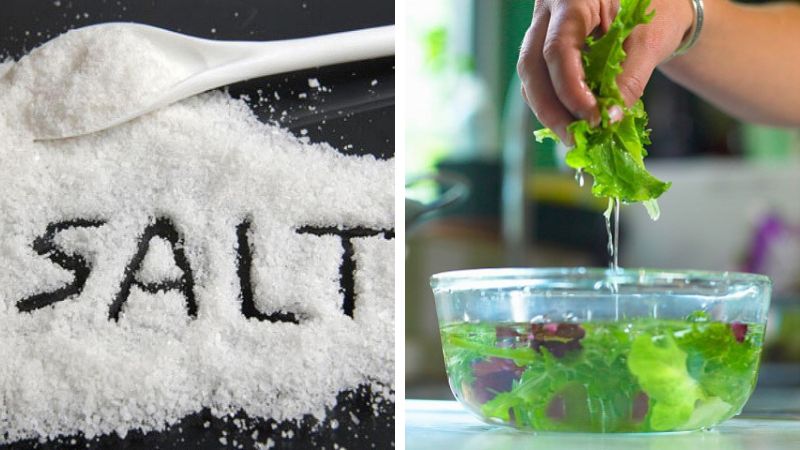
Furthermore, TS Tu Ngu, the Secretary General of the Vietnamese Nutrition Association, warns that adding salt to wash vegetables is incorrect and excessive use of saltwater can have negative effects on health. High concentrations of salt in water can increase permeability pressure, leading to salty vegetables and potentially causing kidney damage, high blood pressure, and cardiovascular diseases.
In conclusion, the above-mentioned washing methods can cause vegetables to absorb pesticides, which can be harmful to health. It is important to be aware of these methods and seek alternative ways to ensure the safety of consuming fruits and vegetables.
Source: Vietnamese Women
Exploring the Pros and Cons of Sleeping in an Air-Conditioned Room
Is sleeping with an air conditioner a good idea? As concerns over the adverse effects of air conditioning on our health increase, it’s important to understand the risks and rewards of using air conditioning while sleeping. Let’s examine the benefits and drawbacks of sleeping with an air conditioner, and the protective measures one should take.







